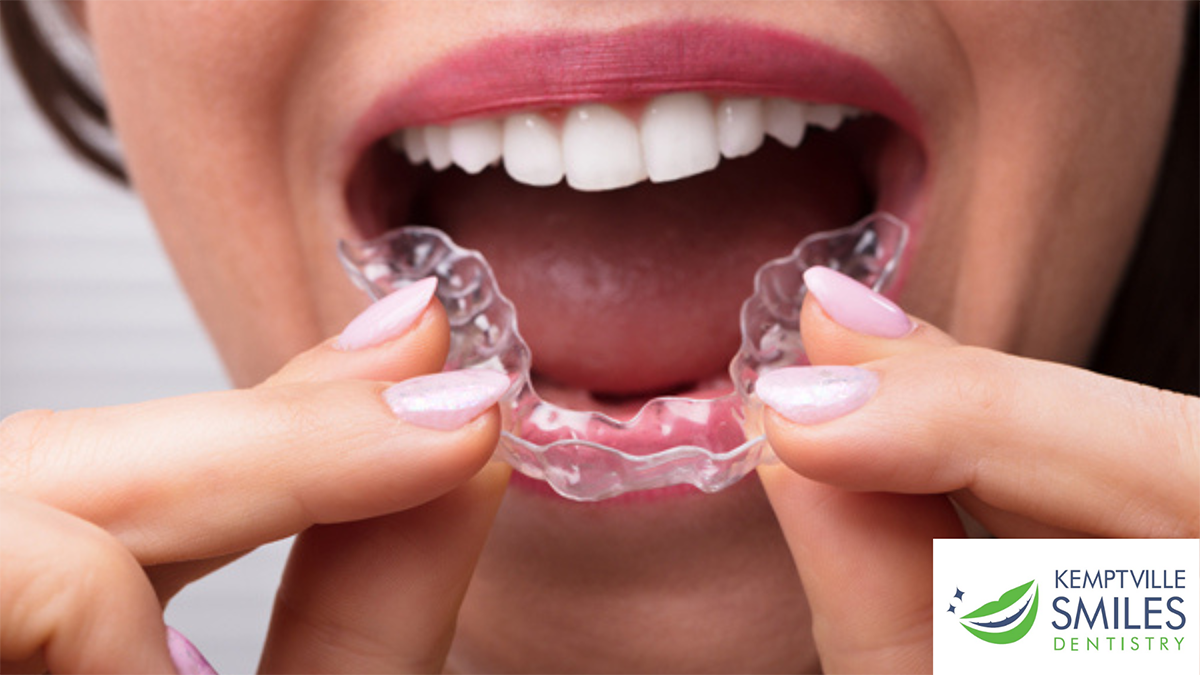
Invisalign is a form of clear aligner therapy, using custom-made, removable plastic trays made of BPA-free, medical-grade thermoplastic material that are made thin, comfortable, and virtually undetectable, giving patients a great alternative to braces.
To start using Invisalign, your dentist or orthodontist will take impressions of your teeth and create a 3D digital model of your mouth. From there, they'll create a customized treatment plan that details each step in the progression of treatment for all the individual teeth involved.
Once your aligners are ready, they should be worn for 20–22 hours daily and removed only to eat, brush, and floss. Every two weeks, you'll switch over to new aligners designed to gradually move your teeth into the next phase of treatment.
Invisalign can be an effective solution to numerous orthodontic issues, including overbites. However, its efficacy will depend on several factors, including the severity of the overbite as well as the jawbone structure and position of teeth.
Typically, Invisalign works well for patients with mild to moderate overbites; those with severe overbites may require more traditional orthodontic treatments like braces or surgery.
Can Invisalign Solve All Orthodontic Issues?
Although Invisalign can be effective for treating various orthodontic issues, it may not be the optimal solution for every individual patient. Invisalign was specifically created to correct mild to moderate cases of overcrowding, spacing issues, and misalignments of teeth.
Sometimes more traditional orthodontic treatments like braces or surgery may be required to achieve optimal results. Your dentist or orthodontist can assess your individual needs and devise a personalized plan of action.
Are There Any Limitations With Invisalign?
As with any orthodontic treatment, Invisalign does have its limitations. Aligners can only move teeth in certain directions, which means they may not be effective enough at correcting certain malocclusions or severe overbites.
As Invisalign aligners are removable, patients must ensure they wear them for at least 20–22 hours every day to achieve optimal results. Failing to adhere to this guidance may extend treatment time or lead to less-than-stellar results.
Invisalign can be an effective solution for correcting overbites; however, to maximize its potential, working with an experienced dentist or orthodontist who can assess your individual needs and devise the most suitable course of treatment is important. If you're curious about Invisalign as a way to address an overbite issue, schedule a consultation appointment with us today!
